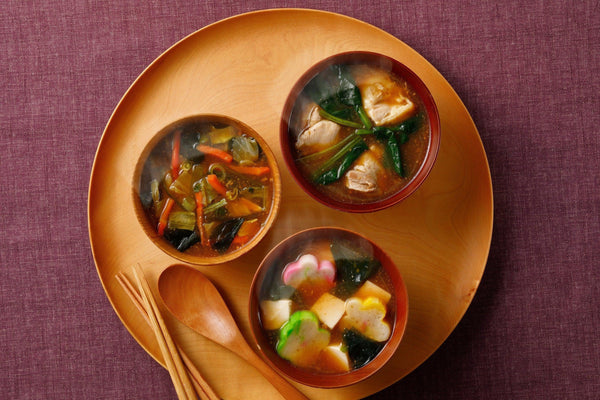
Jump to:
Miso soup is a classic Japanese dish enjoyed daily in many households and has gained global recognition, finding its place in Japanese restaurants worldwide. Have you ever considered making your own miso soup at home? In this article, we'll explore four basic miso soup recipes for you to try.
What Is Miso Soup?
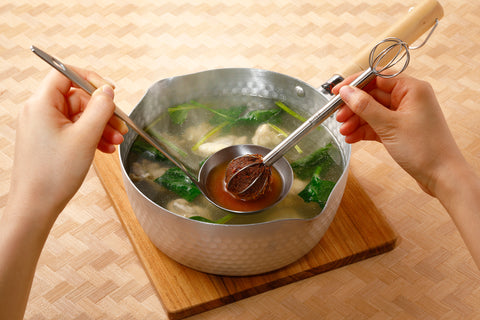
Miso soup, Japan's most popular soup, is crafted by simmering ingredients like vegetables, seaweed, and tofu in dashi broth, infused with dissolved miso paste. Miso, a fermented seasoning introduced from China 1,200 years ago, varies in flavor, color, and umami based on ingredients, location, and production methods. Widely consumed in Japan, it's a common home-cooked or restaurant side dish, even available as instant varieties. With numerous miso pastes and ingredients, the possibilities are endless. Not to mention, based on the family recipe and ingredients available, recipes can vary so much!
White Miso Soup
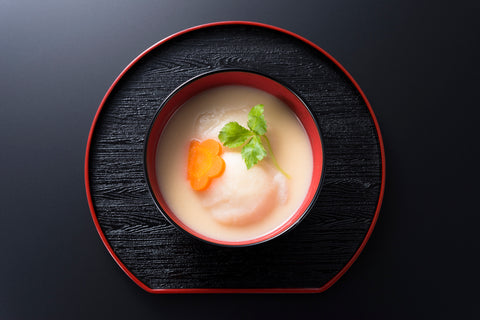
The first variation of miso soup we’ll introduce is white miso soup. White miso paste is known for its sweet profile due to the addition of rice malt and its shorter fermentation period. In our recipe, we used root vegetables and mochi to add a hearty balance of textures. The unique sweetness of the white miso, the chewy texture of the mochi, and the robustness of the root vegetables really tie the whole recipe together.
Red Miso Soup
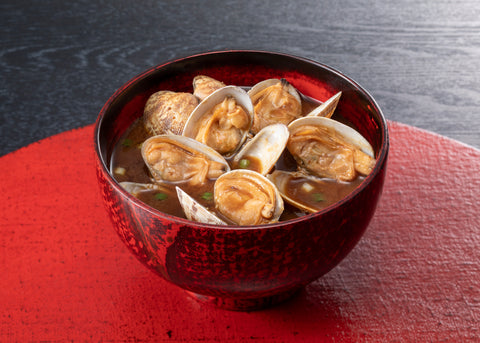
Next up is red miso soup. Red miso, known as aka miso, boasts a richer flavor due to a lengthier fermentation process, resulting in a darker color compared to white miso. Commonly favored in various Japanese prefectures, including Aichi, Mie, Gifu, Toyama, Ishikawa, Miyagi, and Hokkaido, red miso pairs exceptionally well with seafood, specifically, shellfish and white fish. In our recipe, we use clams to flavor the dashi broth. The umami from the clams blends with the saltiness of the red miso, creating a distinct savory taste perfect for warming up during winter. Topped with freshly chopped green onions, this red miso soup offers a comforting bowl of warmth. While this recipe requires a bit more time, we recommend it if you’re looking for a heartier miso soup to enjoy during the winter months.
Mixed Miso Soup
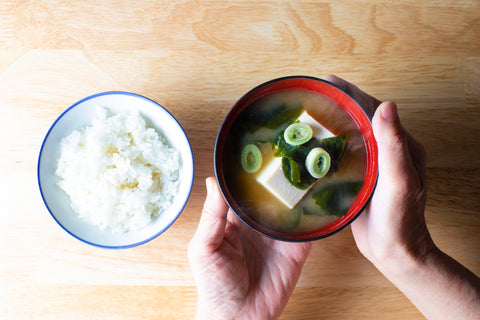
Mixed miso, or awase miso, is a lesser-known variety that combines different grains like soybeans and barley in the miso fermentation process. This creates a paste with a unique flavor profile for each variation. Since this miso has such a robust flavor, we use more standard miso soup ingredients such as wakame seaweed, and daikon radish to allow the mixed miso's flavor to shine. These ingredients, known for soaking up flavors, complement the balanced nature of mixed miso, which is not overly salty and offers ample umami. Despite the simplicity, this miso soup is versatile, suitable for any time of day, whether paired with other dishes or enjoyed on its own with rice.
Tonjiru
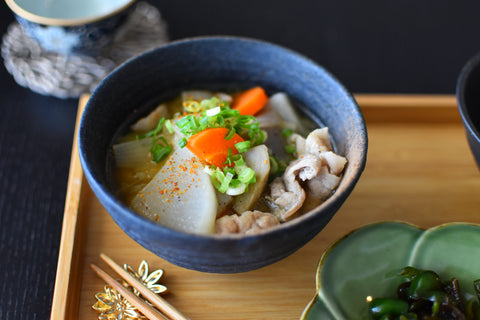
If you’re still not satisfied with miso soup and are looking for a heartier option, then you’ve got to try tonjiru. This miso soup variation stands out with its diverse ingredients, featuring sliced pork, preferably pork belly, for a sumptuous and savory umami experience. Complemented by an array of vegetables, particularly root vegetables like carrots and burdock root, Tonjiru offers a satisfying and balanced alternative to the traditional miso soup and rice combination. Additional variations may include tofu, taro, potato, sweet potato, cabbage, Shiitake mushroom, Shimeji mushroom, and grated ginger for a hint of spice. Notably associated with winter, Tonjiru holds cultural significance and is often enjoyed during community gatherings and seasonal celebrations.
Vegan Miso Soup

Vegans, vegetarians, and veggie lovers alike need not miss out on the goodness of miso soup. In our vegan miso soup recipe, we incorporate cold-brewed kombu dashi for extra flavor. We include an assortment of vegetables like cabbage, carrot, and burdock root, though you're welcome to swap them out and add your favorites. Adding tofu or fried tofu makes the soup heartier and boosts its protein content.
Of course, to make a tasty miso soup, you’ll need a good dashi soup base recipe. Luckily, we have one which you can check out here! If you want to try more Japanese recipes, be sure to check out our recipe list too.
Which miso soup recipe was your favorite? Which one will you try first? We’d love to know in the comments below.


0 comments